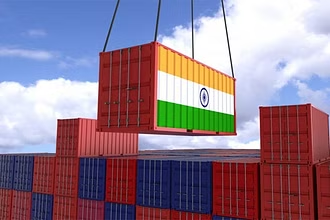Global Remittance Rankings
India has reached a historic milestone in 2024, receiving $129.1 billion in remittances, marking the highest-ever remittance inflow for any country in a single year. This impressive figure not only solidifies India’s position as the world leader in remittances but also highlights the significant role that remittances play in the economic stability of developing nations.
According to the World Bank, India accounted for 14.3% of global remittances in 2024, the highest share recorded by any country since 2000.
What Are Remittances and Why Are They Important?
Remittances refer to money sent by individuals working abroad to support their families and households back home. For many families, especially in low- and middle-income countries, these financial transfers are a crucial lifeline.
Remittances help to improve household income, boost local economies, and contribute to financial stability in recipient countries. These inflows are especially vital in economies where employment opportunities are limited, or economic conditions are challenging.
India’s Dominance in Global Remittance Trends
In 2024, India was followed by Mexico and China, who secured the second and third positions in global remittance receipts, respectively. Other notable countries that saw significant remittance inflows included the Philippines, France, Pakistan, Bangladesh, Egypt, Guatemala, and Germany.
However, China’s position is of particular interest. While China had previously matched India’s share of global remittances in the late 2000s, its share dropped significantly to just 5.3% in 2024, a two-decade low.
This decline is attributed to China’s growing economic prosperity and an aging population, which has led to a reduction in the migration of less-skilled workers abroad.
India’s Consistent Growth in Remittance Receipts
India, on the other hand, has consistently received a larger share of global remittances since 2000, and its share in 2024 was nearly double that of Mexico, which accounted for 7.5%.
The post-pandemic years have seen a marked increase in India’s remittance receipts, reflecting the country’s enduring reliance on migrant labor and the resilience of its diaspora communities.
The Role of Remittances in Developing Economies
For many low- and middle-income nations, remittances serve as a crucial source of income and are more impactful than other forms of financial inflows. In 2024, these nations collectively received $685 billion in remittances, the highest amount recorded in a single year.
This figure surpasses the combined total of Foreign Direct Investment (FDI) and Official Development Assistance (ODA), which are traditional sources of external funding for developing economies.
FDI involves foreign investments in local businesses, while ODA typically consists of grants or concessional loans from wealthier nations to poorer ones.
However, remittances have proven to be more direct and impactful for households in need, providing financial support that can be used for daily expenses, education, healthcare, and improving living standards.
The significant growth in remittances to low- and middle-income countries highlights their importance in sustaining the livelihoods of millions of families worldwide.
In 2024, remittances have played an even more crucial role in supporting the economic recovery of these nations, making them an essential element of global financial flows.
As India leads the way, the global remittance landscape continues to evolve, with countries like Mexico, the Philippines, and China also making significant contributions to this vital financial lifeline.


